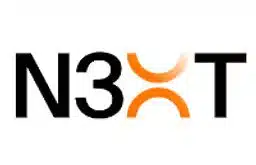The race to bring online banking and bill-payment services to users' handsets is getting more intense. Most recently, Chantilly, Va.-based Online Resources Corp. said it is entering mobile banking by partnering with Access Softek Inc., a Berkeley, Calif.-based developer of financial services software. The application uses Access Softek's OFX (open financial exchange) software architecture. OFX provides compatibility between online banking and bill payment applications and personal financial-management applications, such as Quicken, QuickBooks, and MS Money. The new application, which is being piloted by three banks, resides on a remote secure server and is accessed through the wireless network. The application is compatible with up to 70% of the wireless handsets in the marketplace and works with all major U.S. carriers. The announcement by Online Resources, a longtime provider of online banking and bill payment applications to 2,600 financial institutions, billers, and credit providers, follows by two months a deal between rival CheckFree Corp. and software provider Firethorn Holding LLC and wireless carrier Cingular to bring online banking to mobile devices (Digital Transactions News, Nov. 16). Other providers of online-banking software, too, have introduced mobile-banking products in recent weeks, including Yodlee Inc. (Digital Transactions News, Oct. 18). In Online Resources' application, all account information is stored with the financial institution. Users can maintain detailed account-data and transaction records for up to 120 days after each transaction or account activity. Data are secured using 128-bit encryption. “Mobile banking and bill payment are important offerings because wireless phones and handsets are ubiquitous and mobile commerce is at the point where it is moving up the J curve,” says Matthew P. Lawlor chairman and chief executive for Online Resources, which has 8 million users. M-commerce generally has been receiving much attention lately as the card companies and cellular networks jockey for position to cash in on the potential stream of new volume. Citibank, for example, is scheduled to launch an m-commerce pilot in New York this month with co-sponsors MasterCard Worldwide and Cingular Wireless involving several hundred customers. Phones can be used to purchase transit fares at three subway stations and merchants in the city equipped with contactless card terminals. This week, Visa USA announced an m-commerce platform that will enable members to deliver mobile contactless payments, remote payments, person-to-person payments, and coupons, in addition to performing account management. The platform is expected to eventually support person-to-person payments, a market into which online processor PayPal Inc. is aggressively moving. At the same time, however, the nascent market has been beset by a long-running dispute between banks and carriers over control of transactions, and ultimately of profits. Lawlor insists the business model used by Online Resources is profitable for both financial institutions and wireless carriers. “The network doesn't control the application and the network can package the service as part of their subscriber fees,” he says. “This solution lets banks be banks and networks be networks.” Ultimately, Lawlor says the application can be expanded to include point-of-sale transactions and person-to-person payments once users become comfortable with using their phone for m-banking and bill payment. “The best way to move users into new applications is first establish a beachhead, prove the service works, and then build more services around it,” he says. “Consumers are ready for m-commerce and this is the first step.”
Check Also
PAR’s Revenue Rises As It Eyes More AI Use
With a notable Papa John’s win already this year, PAR Technology Corp. looks to build …






